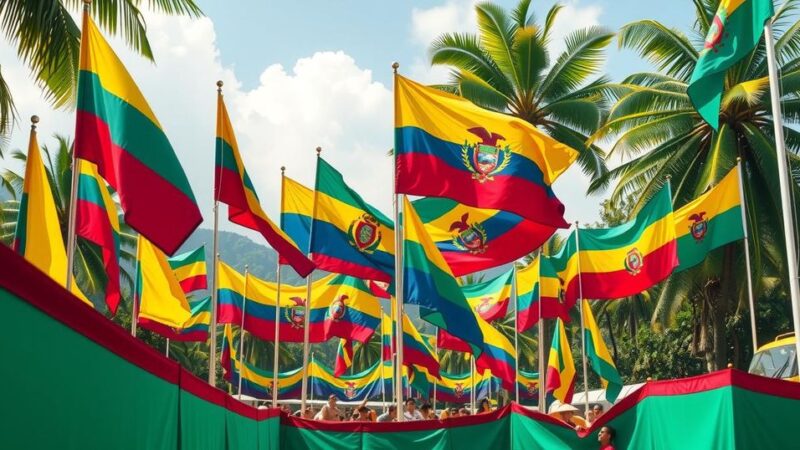Badar Khan Suri, an Indian postdoctoral researcher, has been detained for deportation under allegations of supporting Hamas and promoting antisemitism. Georgetown University supports Suri, stating they are unaware of illegal activities. Legal action is underway for his release, echoing recent cases of other pro-Palestinian activists facing similar issues. This situation raises significant concerns regarding academic freedom and political activism in immigration enforcement.
Badar Khan Suri, an Indian postdoctoral researcher at Georgetown University, has been detained for deportation under the Trump administration, accused of disseminating pro-Hamas propaganda and promoting antisemitism on social media. Tricia McLaughlin from the Department of Homeland Security (DHS) announced the allegations, citing Suri’s supposed connections to a known terrorist advisor to Hamas, but did not provide supporting evidence for these claims.
Suri’s research focused on peace-building in Iraq and Afghanistan, and the university has expressed that they are unaware of any illegal activities on his part. The institution also emphasized the importance of free inquiry within academic discourse, affirming their support for Suri amidst these allegations. Currently, Suri is held at an ICE detention facility in Louisiana.
Legal representation for Suri, lawyer Ahmad Hassan, has filed for his release in the US District Court for the Eastern District of Virginia. The Georgetown community has voiced concern over the implications of his detention, particularly in relation to academic freedom and speech.
The situation mirrors recent events involving Columbia University student Mahmoud Khalil, who faced arrest for similar pro-Palestinian activities. Following Khalil’s appeals in federal court, arguments against his deportation related to constitutional rights are ongoing, highlighting broader tensions surrounding immigration enforcement in connection to political activism.
The case of Badar Khan Suri underscores the complexities of academic freedom and the implications of political discourse in the current immigration climate under the Trump administration. Suri’s detention raises critical questions regarding due process and the intersection of activism and immigration policy. It reflects a concerning trend wherein individuals engaged in controversial political dialogue face significant legal repercussions. The outcome of Suri’s case, alongside others like Khalil’s, will likely influence future discourse on civil rights and immigration policy in the U.S.
Original Source: www.aljazeera.com






